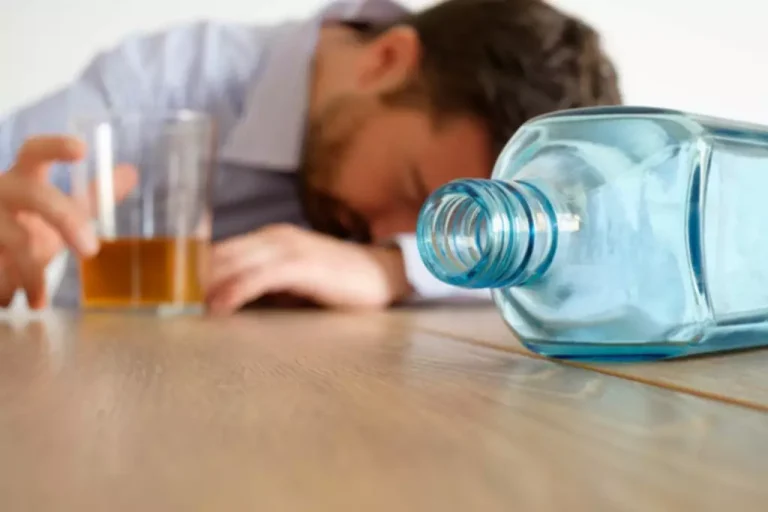
After discussion of the results of the UDT and clearly stating the expectations of the clinic, the patient seems to be adhering to clinic guidelines and abstaining from marijuana use. If “random” (ie, nonscheduled) UDTs are negative for illicit substances and positive for prescribed hydrocodone, the physician may cautiously continue prescribing an opioid. Praise for adherence to abstinence is helpful as opposed to simple admonishments regarding the deleterious effects of cannabis. Describing the risk of diversion when the patient is in contact with the illegal source of cannabis also may be helpful. If the patient is abusing other substances, it will come to light through closer monitoring. Assistance from therapy and support circles is crucial for those trying to break free from ibuprofen dependency.
- An addiction to additional drugs in addition to Ibuprofen abuse may require the help of an rehab center.
- These headaches do not have a malignant origin in nature but are termed as “drug-induced rebound headaches” because our body is not used to functioning without high levels of painkillers in our system.
- Someone who has become dependent on or addicted to over-the-counter painkillers like Ibuprofen should seek professional assistance.
- At a minimum, adherence to medication regimen may be disrupted and substances (licit and illicit) may affect metabolism of prescribed medications.
- It often occurs when individuals use ibuprofen as an emotional crutch to deal with deeper issues beyond their experience of pain.
- Ibuprofen addiction can happen when people take too much of the medicine, too often or for too long.
Health topics

Many people may find it essential to take painkillers, such as Ibuprofen, on a long-term basis to manage severe and chronic pain, just as joint pain from arthritis or back pain from an injury. While Ibuprofen is not psychologically or physically addictive, an individual may become physically dependent on keeping their activity level by managing pain. Other types of pain relief medication are steroids and narcotics, or opioids. NSAIDs are safer than both of these, as long-term steroid use can have severe adverse effects, and taking opioids can result in improper use. With over three decades of experience, Castle Craig has helped countless patients regain control of their lives. We provide a range of evidence-based therapies proven to treat drug addiction.
Connection Between Ibuprofen Misuse and Addiction to Other Substances
If teens are facing internal temptations to use substances, having a toolkit of positive redirected behaviors is crucial. In addition to being concerned that their children may be at greater risk for addiction, parents of ADHD teens worry that they may not be able to tell the difference between core symptoms or typical ADHD behaviors and signs of substance use. Teens with attention-deficit/hyperactivity disorder (ADHD) face several unique challenges that can make navigating academics, friend circles, and home life challenging.

Risk Assessment and Stratification
By learning how to self-regulate, teens may be able to avoid the temptation to self-medicate. Additionally, having healthy outlets for hyperactivity and impulsivity can be important. This might look like enrolling in an organized sport, pursuing art, or taking up a hobby.

People with an opioid prescription for longer can you get addicted to ibuprofen than 30 days, a history of addiction, or a health condition such as liver, lung, heart or kidney problems will often have naloxone prescribed along with opioids, Dr. Geyer says. Nonopioid pain relievers such as acetaminophen (Tylenol, others) and ibuprofen (Advil, Motrin IB, others) are safer and often as effective as opioids for managing pain. Your doctor might recommend scheduling nonopioid pain relievers and using opioids only for breakthrough pain. Opioids affect the pleasure center of the brain, which can make the whole body want more.
- When you hear “drug overdose,” images of potent drugs or powerful prescription medications probably come to mind.
- Immediate medical attention is crucial if an overdose is suspected to prevent potentially life-threatening consequences.
- Keep a list of everything you use, including herbal products, prescription and over-the-counter medications, and provide it to your doctor and pharmacist.
Your brain is connected to every bit of your body via a complex network of nerves. Receive free access to exclusive content, a personalized homepage based on your interests, and a weekly newsletter with the topics of your choice. Receive free access to exclusive content, a personalized homepage based on your interests, and a weekly newsletter with topics of your choice. It is important to note that reassessments must occur over time, as these categorizations are dynamic, not static.


The medical definition of an addictive medication is that you need more and more as time goes on to have the same effect, and you crave it if you don’t have it. The patient may present https://ecosoberhouse.com/ with discrepant pill counts or openly admit to taking extra medication for rescue purposes. Patients in this category may require motivational interviewing, additional telephone support, and consultation.
Ibuprofen and Rebound Headaches – The Vicious Cycle
Ibuprofen, a widely used nonsteroidal anti-inflammatory drug (NSAID), has long been regarded as a reliable remedy for pain and inflammation. With its over-the-counter availability, it has become a household staple for millions, offering relief from various ailments. However, beneath its therapeutic facade lies a lesser-known concern – the potential for misuse and addiction. Persisting on using ibuprofen despite experiencing adverse effects is a hallmark sign of addictive behaviour.














